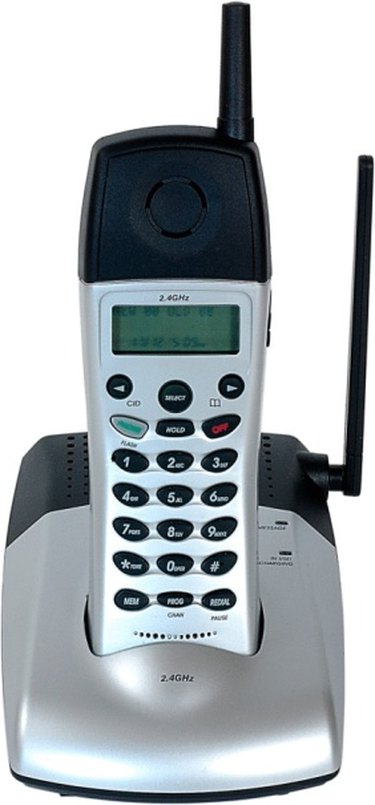
In the digital age, the use of cell phones has led to the very rapid decline in landline usage. In fact, so many households are electing to forego landlines that realizing exactly what the different types of landlines are can be a challenge. For some households, however, landlines will stay a permanent fixture. And for some people with vision or hearing disabilities, landline phones offer some features that cell phones don't.
Corded Phones
Video of the Day
Corded telephones are available in both desktop and wall-mounted models. Corded telephones are a more affordable option in landline phones, but they do not offer the flexibility of cordless phones. Many corded landline phones have a speakerphone option that allows a bit more mobility. Longer phone cords are another option for gaining mobility. The primary upside of a corded phone versus a cordless phone is the reliability during a power outage. When power is unavailable, a corded phone will continue to work.
Video of the Day
Cordless Phones
Cordless phones became an option that bridged the affordability of a landline and he flexibility of a cell phone. Cordless phones offer freedom and mobility as they can be taken outside while users work in the yard or simply watch the children play. Cordless phones make it possible to go on with your daily tasks without worrying about missing an important call. Many newer cordless phone systems offer multiple cordless handsets that work off of one base without the need for additional phone lines. The downside of cordless phones, however, is general interference and the lack of service during a power outage.
Special Needs
Many corded and cordless landline telephones come with a variety of options for individuals with special needs. For those who suffer from a hearing loss, phones with amplified sound are available. Phones with lights that flash when the phone is ringing are also available to help users with hearing loss. For individuals with vision problems, some phones have larger dial pads. Braille telephones have also been designed that offer large buttons with Braille on the keypads.
Landline Usage
The use of landline telephones has plummeted in recent years. As more and more consumers use cell phones, many find it more convenient and less costly to replace their landline with their cell phone. Individuals with a small or fixed income are finding it necessary to cut their landline altogether to afford a cell phone they can have with them in case of emergencies. The downside of giving up a landline, though, is that if your cell phone is lost or misplaced, you may not have the ability to get help when it is needed.